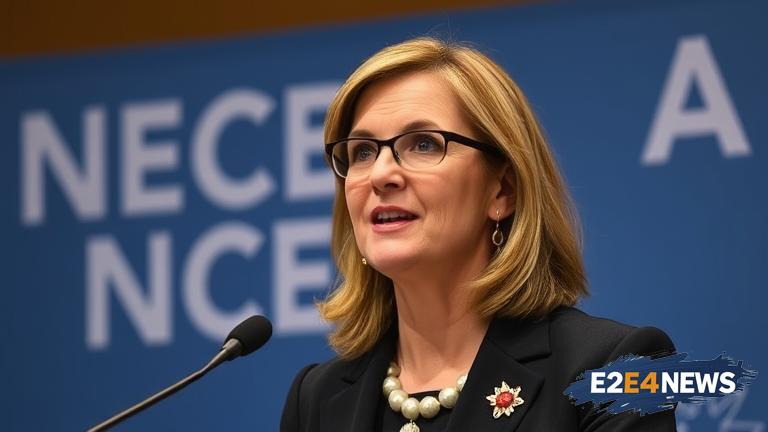In a press conference, Education Minister Erica Stanford outlined the government’s plans to reform the NCEA system, which has been in place since 2002. The changes aim to simplify the assessment process, reduce the number of standards, and provide more flexibility for students. The minister emphasized that the current system is too complex and has led to teacher burnout and student disengagement. The new system will focus on core subjects such as mathematics, reading, and writing, and will introduce a new ‘achievement standard’ that will replace the current ‘unit standard’ and ‘achievement standard’ system. The changes will also see the introduction of a new ‘NCEA Level 1’ certificate, which will be awarded to students who achieve a certain level of proficiency in core subjects. The minister stated that the reforms will be implemented over the next few years, with the first changes taking effect in 2024. The government has also announced plans to increase funding for education, with a focus on supporting disadvantaged students and schools. The reforms have been welcomed by some educators and stakeholders, who believe that the current system is in need of an overhaul. However, others have expressed concerns about the potential impact on student outcomes and the workload of teachers. The minister has assured that the government will work closely with educators and stakeholders to ensure a smooth transition to the new system. The NCEA system has been the subject of controversy in recent years, with some critics arguing that it is too focused on assessment and not enough on student learning. The government has stated that the reforms will prioritize student learning and well-being, and will provide more opportunities for students to pursue their interests and strengths. The changes will also see the introduction of a new ‘NCEA Level 2’ certificate, which will be awarded to students who achieve a higher level of proficiency in core subjects. The minister has emphasized that the reforms will be evidence-based and will be informed by research and best practice from around the world. The government has also announced plans to establish a new ‘Education Commission’ that will oversee the implementation of the reforms and provide advice to the government on education policy. The commission will be made up of educators, stakeholders, and experts in the field of education. The minister has stated that the government is committed to ensuring that all students have access to high-quality education, regardless of their background or circumstances. The reforms will also see the introduction of a new ‘NCEA Level 3’ certificate, which will be awarded to students who achieve a high level of proficiency in core subjects. The minister has emphasized that the reforms will prioritize student outcomes and will provide more opportunities for students to pursue their interests and strengths. The government has stated that the reforms will be implemented in a phased manner, with the first changes taking effect in 2024. The minister has assured that the government will work closely with educators and stakeholders to ensure a smooth transition to the new system. The reforms have been welcomed by some educators and stakeholders, who believe that the current system is in need of an overhaul. However, others have expressed concerns about the potential impact on student outcomes and the workload of teachers.





